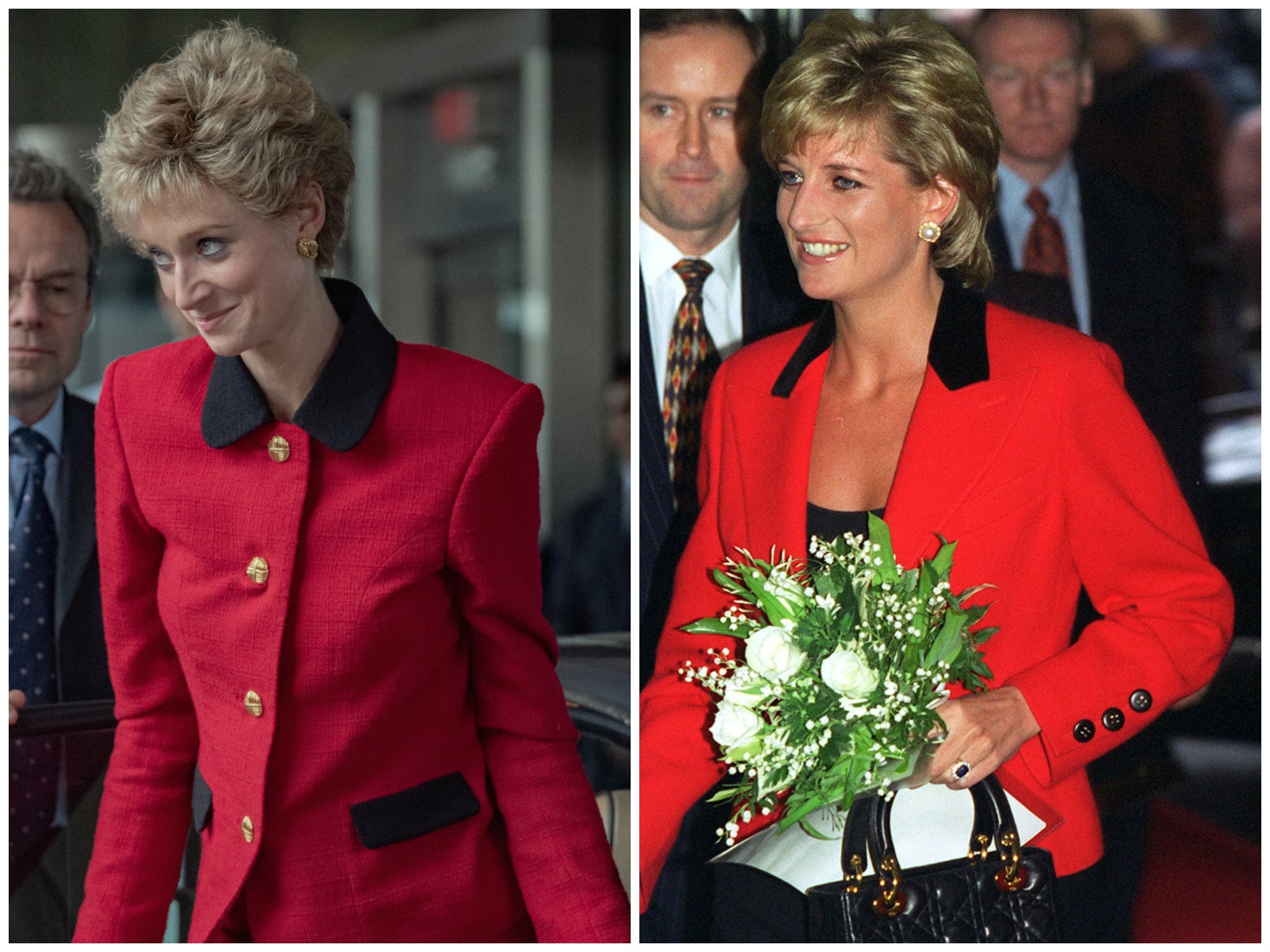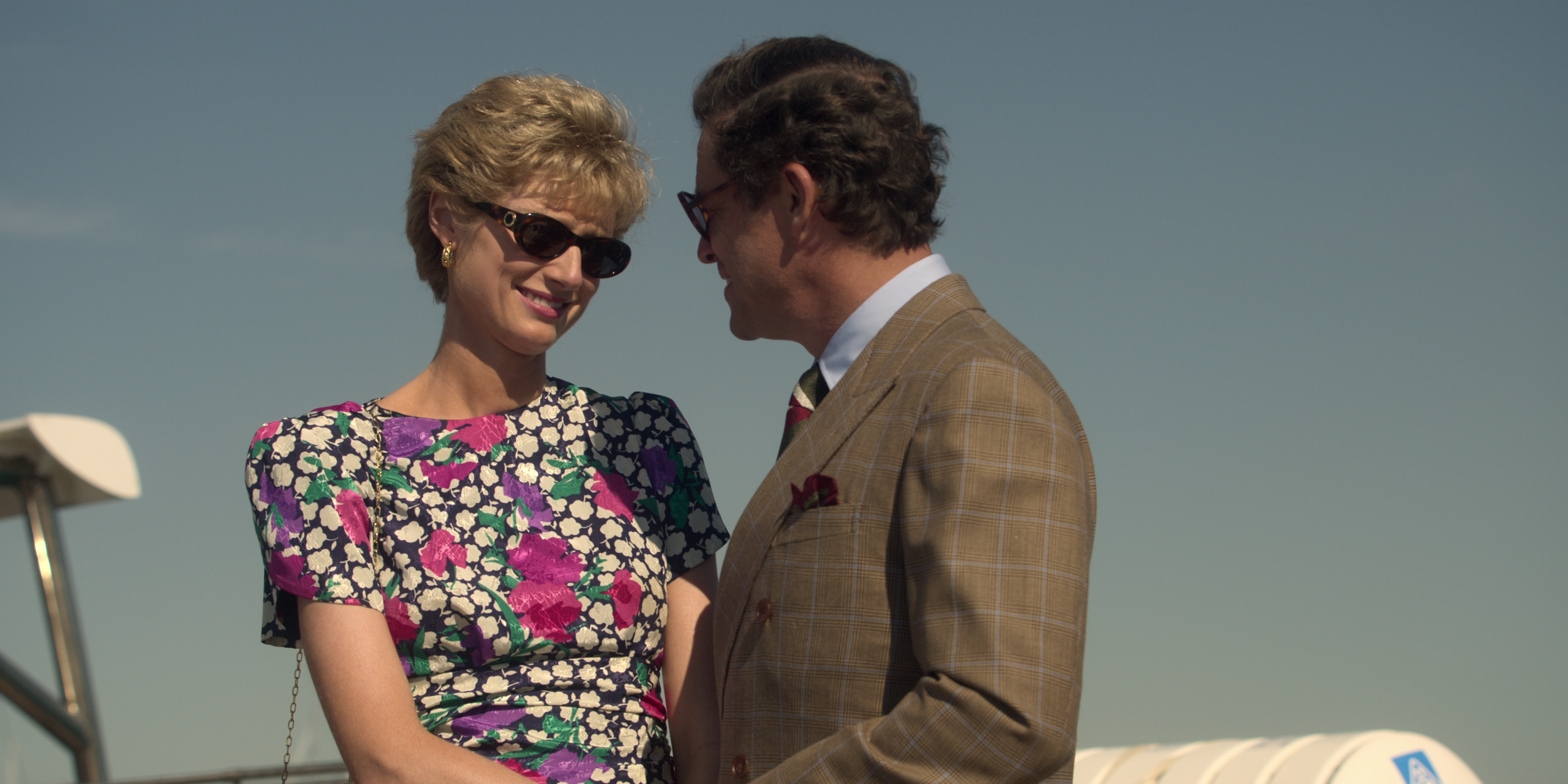The Independent's journalism is supported by our readers. When you purchase through links on our site, we may earn commission.
The Crown: What did Princess Diana say about her suicide attempts?
New series of ‘The Crown’ looks at the tapes featured in Andrew Morton’s infamous book, ‘Diana: Her True Story’
*Warning: this article discusses suicide*
It has been 25 years since Diana, Princess of Wales died in a fatal car crash in Paris, with the new season of The Crown taking a fictionalised look at what happened in her final years.
The fifth instalment of the Netflix drama which depicts the reign of Queen Elizabeth II is set between 1990 and 1997.
In the second episode of the season, set in 1991, Diana (played by Elizabeth Debicki) is seen recording her “secret tapes” which were subsequently given to her friend James Colthurst and used by Andrew Morton in his 1992 book, Diana: Her True Story.
In the episode, Diana says to the recorder: “When I was pregnant with William I threw myself down the stairs at Sandringham.”
But how true are these statements and what did Diana say on the tapes?
According to reports at the time and to what is written in Morton’s book, Diana tried to take her own life five times during her marriage to the now King Charles.
According to Morton, the Queen Mother was among the first to come upon Diana at the bottom of the stairs and was said to be “horrified, physically shaking with the shock of what she had witnessed”.

The Queen Mother, who died in 2002, never commented on the validity of this statement, but Buckingham Palace said at the time: “We are not prepared to say how [Charles] is reacting or how [Diana] is reacting [to the book’s release]. It is not for us to keep a circulation war going with comments one way or another, because that is what it is all about.”
Diana later went to speak of mental health and her battle with bulimia in the infamous 1995 Martin Bashir interview on the BBC.
“[Bulimia’s] like a secret disease,” she told Bashir. “You inflict it upon yourself because your self-esteem is at a low ebb, and you don’t think you’re worthy or valuable. You fill your stomach up four or five times a day – some do it more – and it gives you a feeling of comfort.”
Diana added that the bulimia was a result of her marriage to Charles and that she was “crying out for help but giving the wrong signals”. She added: “People were using my bulimia as a coat on a hanger: they decided that was the problem – Diana was unstable.”

Diana’s bulimia was depicted in the fourth season of The Crown. Actor Emma Corrin who played a young Diana told Town & Country at the time: “I realised how symptomatic [Diana’s] bulimia was of everything she was going through at the time, and how it caused a lot of what she was going through at the time.
“So I thought to just allude to it – or maybe to reference it but not really show it – would be doing her a disservice, or her story a disservice in some way. I also think that it’s just really important that these things are shown on screen – obviously treated in the right way and with trigger warnings and that kind of thing, to be done sensitively – but I think if you can include these things in an honest way, you should.”
If you are experiencing feelings of distress and isolation, or are struggling to cope, the Samaritans offers support; you can speak to someone for free over the phone, in confidence, on 116 123 (UK and ROI), email jo@samaritans.org, or visit the Samaritans website to find details of your nearest branch.
If you are based in the USA, and you or someone you know needs mental health assistance right now, call National Suicide Prevention Helpline on 1-800-273-TALK (8255). The Helpline is a free, confidential crisis hotline that is available to everyone 24 hours a day, seven days a week.
If you are in another country, you can go to www.befrienders.org to find a helpline near you.
For anyone struggling with the issues raised in this piece, eating disorder charity Beat’s helpline is available 365 days a year on 0808 801 0677. You can visit their website here.
NCFED offers information, resources and counselling for those suffering from eating disorders, as well as their support networks. They can be reached by phone on 845 838 2040 or their website here.
Join our commenting forum
Join thought-provoking conversations, follow other Independent readers and see their replies
Comments


Bookmark popover
Removed from bookmarks